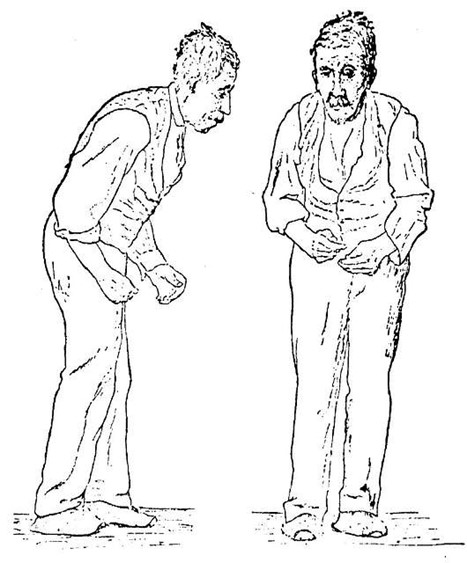Living to 100? The Science and Skepticism Behind Blue Zones’ Longevity Secrets
In recent years, the idea of “Blue Zones”—areas where people reportedly live much longer than the global average—has captured popular imagination. Places like Okinawa, Japan; Sardinia, Italy; Nicoya, Costa Rica; Ikaria, Greece; and Loma Linda, California, seem to hold a blueprint for longevity. Here, residents often live to 100 or more, boasting lower rates of chronic diseases. The Blue Zones concept, coined by Dan Buettner, suggests lifestyle and cultural factors in these regions may reveal secrets to a long, healthy life. But can we truly replicate these findings, or are they just intriguing anecdotes?
Let’s dive into the science, and the skepticism, behind these longevity havens.
What Are Blue Zones?
Blue Zones refer to five distinct regions around the world where a significant portion of the population lives longer than average. Residents in these regions often surpass the age of 90 or even 100, exhibiting enviable health in their later years. Buettner, who originally identified these zones, highlighted common factors he believed contributed to their inhabitants’ longevity, including:
- Diet – Predominantly plant-based, minimally processed, and featuring whole foods.
- Physical Activity – Integrated into daily routines rather than formal exercise.
- Community & Family – Strong social networks and close familial ties.
- Sense of Purpose – Known as ikigai in Japan or plan de vida in Costa Rica.
- Stress Reduction – Engaging in regular rituals that reduce stress, like prayer or afternoon naps.
These elements seem to create a lifestyle conducive to physical health, emotional well-being, and mental resilience.
What Science Says About Blue Zones’ Longevity Factors
- The Diet Factor
In Blue Zones, diets are predominantly plant-based and rich in legumes, grains, fruits, and vegetables. They consume moderate to low amounts of meat, processed foods, and added sugars, aligning with many findings on cardiovascular health, cancer prevention, and weight management.
Scientific Support: Research consistently shows plant-based diets can improve health outcomes, reduce inflammation, and lower the risk of chronic diseases. The Mediterranean diet, for instance, has been associated with reduced risks of heart disease and cognitive decline. Yet, it’s worth noting that Blue Zone diets vary and are shaped by local availability and cultural practices, making the concept hard to generalize.
- Physical Activity as a Lifestyle
Residents in Blue Zones engage in consistent, natural movement, whether farming, walking, or household tasks. Their activity is embedded in their daily lives, rather than relegated to a gym.
Scientific Support: Studies reveal that consistent moderate physical activity reduces risks of numerous health issues, including diabetes and hypertension. Exercise is also linked to improved cognitive health and mental well-being, supporting longevity.
- The Role of Community and Family
The strong sense of community and family appears to play a substantial role in longevity. Many Blue Zones inhabitants experience regular social interactions, have extensive support networks, and feel a profound sense of belonging.
Scientific Support: Social support and connections have been associated with lower rates of mental health issues, cardiovascular disease, and even increased survival rates. Research shows that loneliness is linked to poorer health outcomes, particularly among the elderly, making this an important longevity factor.
- A Sense of Purpose
In Blue Zones, having a sense of purpose has been suggested as a reason why residents live long, fulfilling lives. For instance, in Okinawa, many retirees remain active in community roles, hobbies, or mentorship, giving them a reason to wake up each morning.
Scientific Support: Studies have shown that having a purpose can lead to better mental health and reduced stress. One study in The Lancet linked purpose with lower risks of mortality in people over 50, potentially due to reduced stress and better lifestyle choices.
- Stress Reduction Rituals
Residents of Blue Zones engage in routines that help them manage stress. For example, Ikarians take regular afternoon naps, while Okinawans participate in communal gatherings.
Scientific Support: Chronic stress has been shown to weaken immune function, increase inflammation, and elevate blood pressure—all factors associated with aging. Practicing stress-reduction techniques, such as mindfulness and relaxation, is indeed linked to better health outcomes.
The Skepticism: Can We Really Live Like Blue Zones?
Despite the allure of Blue Zones, there is skepticism about their practical application. Here are some critical points to consider:
- Genetic Factors – Genetics undoubtedly play a role in longevity. It’s unclear how much of Blue Zones’ longevity can be attributed to genes versus lifestyle, and replicating those genetic predispositions is out of reach for most.
- Selection Bias – Blue Zones may reflect a type of survivorship bias. In these regions, studies may be focusing on those who lived long while not accounting for those who did not, which can skew conclusions about lifestyle impact.
- Isolating Specific Factors – It’s nearly impossible to isolate any one factor as the “key” to longevity in Blue Zones. Diet, exercise, and social connections interact in complex ways, and what works in one place may not necessarily work in another due to different environmental and cultural contexts.
- Cultural and Environmental Differences – The lifestyles in Blue Zones are deeply intertwined with the culture, environment, and resources available to the inhabitants. Attempting to mimic these practices in drastically different settings might not yield the same results.
- Access to Healthcare – Although healthcare in Blue Zones may not be highly advanced, it tends to be accessible. Preventative care and local medicine practices contribute to healthier aging, which isn’t universally available.
Key Takeaways for Pursuing Longevity
While the exact formula for replicating Blue Zones’ longevity may not exist, there are some universally beneficial practices we can adopt:
- Prioritize Whole Foods – Eating a plant-based, whole-food diet can offer numerous health benefits, potentially improving longevity.
- Incorporate Movement – Regular physical activity is vital, and incorporating it naturally into your daily routine is highly sustainable.
- Build and Maintain Social Connections – Fostering social bonds and building a support system can improve mental well-being and reduce stress.
- Cultivate Purpose – Finding a reason to look forward to each day, whether through work, hobbies, or relationships, may contribute to longevity.
- Manage Stress – Developing routines to reduce stress, such as meditation, yoga, or taking regular breaks, can be highly beneficial.
To learn more, check out this summary from
The New York Times.
The Blue Zones provide a fascinating window into the habits that may contribute to long, healthy lives. However, they are not a one-size-fits-all solution, and individual results may vary based on factors like genetics, environment, and lifestyle. By taking inspiration from Blue Zones’ principles—without expecting guaranteed results—people everywhere can strive for better health, well-being, and perhaps a longer life.
It’s a fantastic idea also to incorporate supplements from the
Asher Longevity Institute. By doing so, we can enhance your body’s overall health and well-being.




